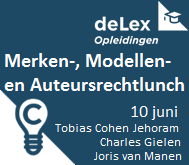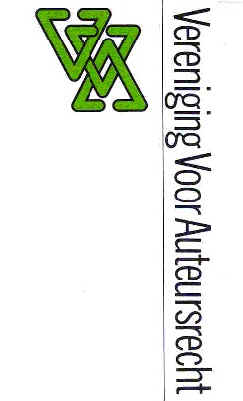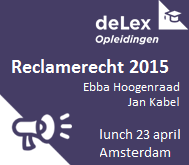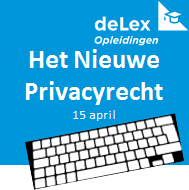2015 IViR Symposium On Alternative Compensation Systems for Digital Copyright

Our results suggest that consumers are dissatisfied with the currently available legal access channels, and consequently, different forms of ACS are supported by the majority of the Dutch population. Our results show that an ACS, if implemented, would provide extra revenues to music and audio-visual rights holders as compared to the status quo. Our project also proved that it is possible to include lay people in highly complex copyright policy decisions.
On Saturday, 11th of July, 2015, we will present our results, and discuss the implications of our findings in three high-profile panels. If you wish to attend, please register soon, as space is limited and running out fast!
Download the program in pdf.
Schedule
09.30 - 09.50 Doors open at the Agnietenkapel (symposium location), registration
09.50 - 10.00 Welcome by Prof. Bernt Hugenholtz (IViR)
10.00 - 12.00 Economic panel: alternatives to the current modes of financing creativity
12.00 - 13.00 Lunch
13.00 - 15.00 Social and political panel: user involvement in copyright policy
15.00 - 15.30 Coffee/tea break
15.30 - 17.30 Legal panel: copyright reform ahead - limits of imagination
17.30 - 17.45 Discussion and closing
Panels and panelists
Economic panel: alternatives to the current modes of financing creativity in the digital age
Legal streaming models seem to be the current favored online content monetization. Their hold the promise of a viable cure for a market long abandoned to unauthorized uses. However, there are warning signs that such models may not provide the definitive answer to the digital distribution conundrum.
First, while they provide an attractive market proposition for many consumers, complex legal and business challenges limit its success in the audiovisual and book sectors. Second, because these models rely on digital rights management – in the form of access and copy controls, including forms of geoblocking –, their hinder end-users consumption and dissemination of works. Third, creators (authors, artists and performers) are increasingly discontent with the meagre royalties the streaming model offers – notably in the music sector –, and rightly fear that low value streaming will replace high value paid downloads. Fourth, the logic of the digital economy may result in a near-monopoly in the content delivery market, where powerful intermediaries like Amazon, Google, Netflix or Spotify control access to audiences and have exclusive price setting power towards both consumers and rights holders. Fifth, from the technical standpoint, dissemination through streaming is less efficient and occupies more resources (e.g. bandwidth) than download based models.
Meanwhile, our study has uncovered a strong consumer willingness to experiment with alternative modes of access and compensation. We have found considerable support for an ACS based alternative, which not only provides extra revenues for authors, artists and other rights holders and enjoys the support of key consumer segments, but would also address many of the monopoly power and licensing issues. Based on these findings we hope to discuss the following topics:
What are the possible instruments to address these interlocking developments?
How does the CSS idea compare to its alternatives in terms of consumer satisfaction, right holder remuneration, enforceability?
Should we expect private ordering, most notably streaming to offer a finally satisfactory practical solution to the age old access/incentives dilemma?
Will the rise of digital intermediaries with strong, near-monopoly positions create new problems for consumers and rights holders alike?
We invited the following experts to share their ideas on the questions above:
Ruth Towse, Professor of Economics of the Creative Industries
Andy Zondervan, New Business Development Manager, Buma/Stemra
Erwin Angad-Gaur, general secretary, Ntb
Social and political panel: user involvement in copyright policy
The impact of users’ activities on copyright is significant and undeniable. Mass unauthorized uses, which translate into copyright infringement and are often referred to as ‘piracy’, are often a driver for copyright policy and used as a rhetorical tool for strengthening protection of rights holders. From a different perspective, concerted user action can have political effects and shape the course of copyright policy, as demonstrated in the cases of ACTA and, in the US, SOPA and PIPA. Notwithstanding, users’ interests, habits, expectations and preferences are routinely disregarded in copyright policymaking.
One explanation for that is the lack of methods with which user preferences can be reliably observed, aggregated and synthesized into sensible policy contributions. Approaches which regard users as consumers who can be appeased with appealing commercial offerings and controlled through internet surveillance and filtering is becoming harder to maintain. Instead, it is becoming apparent that, equipped with appropriate technologies, users can jeopardize policies that fail to meet their expectations and preferences. In tandem, new copyright enforcement tools increasingly clash with fundamental rights of users.
Our study has developed a methodology with which we were able to translate complex legal and policy issues into a survey instrument, which had a simple enough user interface to remain legible for even copyright-naive respondents, but had enough backend complexity to yield invaluable insight into the user preferences on core copyright issues. We then were able to translate highly complex statistical data into simple and straightforward policy recommendations. Empirical evidence is the new rage in copyright policy, but the limitations of an evidence-based approach are also evident. For this reason we’ll ask our panelists to reflect on the following questions:
What is the role of different lobbies in the policy process?
Should user empowerment and the democratic legitimacy of the copyright system be given more attention?
What are the pros and cons, the promises of and limitations to citizen involvement in copyright policy?
What kind of political process can ensure the systematic attention to this large, heterogeneous, but immensely powerful group of stakeholders?
The following professionals agreed to participate in the discussion:
Ian Hargreaves, Professor of Digital Economy, Cardiff University
Julia Reda, Member of the European Parliament
Agustín Reyna, Senior Legal Officer, Bureau Européen des Unions de Consommateurs
Jim Killock, Executive Director, Open Rights Group
Legal panel: Copyright reform ahead - limits of imagination
The current EU copyright legal framework presents multiple challenges to the digital single market goal. The recognition of these challenges motivated the current reform process triggered by the Commission’s Public Consultation. One of the interesting results from that process was the significant participation of non-traditional and non-industry stakeholders, such as individuals, public services institutions and civil society organizations, which voiced demands for a more inclusive copyright policy process. These groups also echoed the perception that the current copyright system is unbalanced, with the rights and interests of users deserving greater consideration. The position of end-users is particularly delicate in the digital environment, as copyright restricts a significant number of online uses. Enforcement of large-scale uses is either impossible (de facto or due to high transaction costs) or undesirable, as it might clash with fundamental rights of individuals, such as freedom of expression online and the right of privacy, or service providers, in what concerns freedom to conduct a business. Criminalization and strict enforcement alienate end-users – with file-sharers being among the best clients of the content industries – and diminish the respect for and legitimacy of copyright law.
It is this context that since 2012 IViR has been conducting an interdisciplinary research project on the legal and socio-economic feasibility of legalizing mass unauthorized uses. These ‘legalization’ proposals often come with different labels: tax-and-royalty systems, license globale, content/culture flat-rate, creative contribution, file-sharing levy, sharing license or alternative reward systems. We use the umbrella term ‘alternative compensation systems’ (ACS) to mean those legal mechanisms that forsake the need for direct authorization of end-user acts – downloading, uploading, sharing, modifying –, while simultaneously ensuring compensation to creators or all rights holders. At EU level, such an ACS could be a properly compensated limitation in the InfoSoc Directive, operating under a statutory license. The same effect could be achieved also through voluntary, extended or mandatory collective management for the relevant acts of reproduction and communication/making available to the public.
Our empirical study found ACS to be an appealing social and economic proposition. It’s legally feasibility, however, is subject to many constraints, stemming from the central role of exclusive rights in the InfoSoc Directive, its broad interpretation by the CJEU and the corresponding strict interpretation of exceptions and limitations. For limitation-based approaches, the three-step test constitutes the most significant obstacle, namely its second condition (‘conflict with the normal exploitation’). In what concerns proposals based collective management, beyond the complexities inherent to substantive and territorial fragmentation of rights, issues arise with the legal qualification of mandatory (and some forms of extended) collective management, namely whether they amount to copyright limitations and are subject to the three-step test. Insofar as certain proposals rely on opt-in or opt-out mechanisms, as well as some form of registration or identification of works, there may be concerns that these elements contravene the Berne principle of no formalities. Although other issues arise, at least these would need to be addressed if we were to take the ACS approach under serious consideration. Within the context of this panel we hope to address the following questions:
What are the hard and soft limits of the EU copyright reform?
Can we get away with a reform that doesn’t touch some of the fundamental principles of copyright law?
What are the alternative approaches that deserve attention?
Are the political constraints on legal reform allow for the desired changes?
Can private ordering initiatives within the current system provide a satisfactory solution?
Is a limitation-based approach a realistic long-term goal and, if so, should it be supplemented with a short to medium term voluntary approach (e.g. a soft law Commission recommendation for extended collective licensing of certain uses)?
How to deal with technical protection measures in the context of an ACS?
What interpretation of the three-step test could render a compensated limitation feasible?
Where are the limits of collective rights management?
The following experts confirmed their participation:
Christophe Geiger, head of the Centre for International Intellectual Property Studies at the University of Strasbourg.
Martin Senftleben, professor of intellectual property, VU
Jacqueline Seignette, a member of the Comité Exécutif of the Association Littéraire et Artistique (ALAI)
Christiaan A. Thijm, Brandeis, partner,
Location
The Symposium will take place in Amsterdam, at the Agnietenkapel. The address is Oudezijds Voorburgwal 229-231, 1012 EZ Amsterdam
Registration
Participation is free of charge but registration is required. If you wish to attend, please send an email with your name, affiliation and address to acs_symposium@uva.nl.


 Vrijdag 17 juni; Trippenhuis, Kloveniersburgwal 29 Amsterdam. De voorjaarsstudiemiddag van de Vereniging voor Media- en Communicatierecht (VMC) zal zijn gewijd aan de vrijheid van meningsuiting. De middag start om 13.30 uur. Het doel van de VMC met deze studiemiddag is om midden in deze woelige tijden een actueel beeld te bepalen van de juridische betekenis van de meningsvrijheid en de geclaimde inperkingen daarvan in Nederland en in Europa.
Vrijdag 17 juni; Trippenhuis, Kloveniersburgwal 29 Amsterdam. De voorjaarsstudiemiddag van de Vereniging voor Media- en Communicatierecht (VMC) zal zijn gewijd aan de vrijheid van meningsuiting. De middag start om 13.30 uur. Het doel van de VMC met deze studiemiddag is om midden in deze woelige tijden een actueel beeld te bepalen van de juridische betekenis van de meningsvrijheid en de geclaimde inperkingen daarvan in Nederland en in Europa. Twee jaar geleden debatteerde de vereniging in Eye over het wetsvoorstel auteurscontractenrecht. Inmiddels ligt het wetsvoorstel in de Eerste Kamer en is het tijd voor een update. Wat is er sinds het oorspronkelijke voorstel veranderd? Wat zijn de verwachtingen van het wetsvoorstel voor de praktijk? Ook vervolgen wij het debat over het kernbegrip van het wetsvoorstel: de billijke vergoeding.
Twee jaar geleden debatteerde de vereniging in Eye over het wetsvoorstel auteurscontractenrecht. Inmiddels ligt het wetsvoorstel in de Eerste Kamer en is het tijd voor een update. Wat is er sinds het oorspronkelijke voorstel veranderd? Wat zijn de verwachtingen van het wetsvoorstel voor de praktijk? Ook vervolgen wij het debat over het kernbegrip van het wetsvoorstel: de billijke vergoeding.

 21 mei 2015; 17:00 - 19:00. Naar aanleiding van "de zaak Tuymans" organiseert
21 mei 2015; 17:00 - 19:00. Naar aanleiding van "de zaak Tuymans" organiseert  20 mei, Amsterdam
20 mei, Amsterdam






















































































